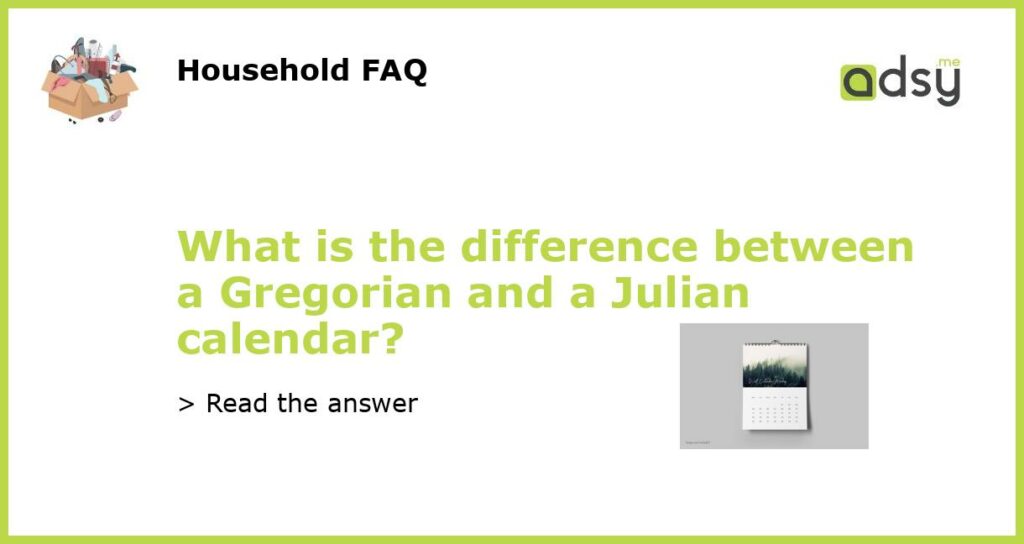The basics of the Gregorian and Julian calendars
The Gregorian calendar is the calendar used in most of the world today. It was introduced by Pope Gregory XIII in 1582 as a reform of the Julian calendar, which had been in use since 45 BCE. The Julian calendar was named after Julius Caesar, who introduced it in the Roman Empire.
Differences in leap years
The main difference between the Gregorian and Julian calendars is in how they handle leap years. In the Julian calendar, a leap year occurs every four years, with February 29th added to the calendar. However, this system results in slightly too many leap years, which causes the calendar to drift over time. To correct this, the Gregorian calendar omits leap years on centenary years that are not divisible by 400. For example, 1700, 1800, and 1900 were not leap years, but 1600 and 2000 were.
How the calendars affect religious holidays
The difference between the two calendars has an impact on religious holidays that are based on the calendar, such as Easter for Christians. The date for Easter is determined by using the first Sunday after the first full moon after the spring equinox. The spring equinox is typically on March 20th or 21st, but the date can vary depending on the calendar. The Julian calendar is 13 days behind the Gregorian, so in some cases, Orthodox Christians will celebrate Easter on a different day than Catholics and Protestants.
Which countries still use the Julian calendar?
While the Gregorian calendar is used by most of the world, there are still some countries and religions that use the Julian calendar. The Eastern Orthodox Church celebrates most religious holidays according to the Julian calendar, and some countries with Orthodox populations – such as Russia, Ukraine, and Belarus – also use the Julian calendar for certain events. Additionally, the Ethiopian Orthodox Church uses a modified Julian calendar that is 7-8 years behind the Gregorian calendar.
Which calendar is better?
There is no definitive answer to which calendar is better. The Gregorian calendar is more accurate in terms of keeping up with the solar year, but the Julian calendar still has some religious and cultural importance. Ultimately, the choice of which calendar to use comes down to tradition, convenience, and other factors.






